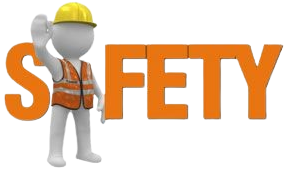1. Enhanced Focus on Health and Well-being
- Mental Health & Well-being: Beyond physical safety, there is increasing emphasis on mental health and employee well-being. Safety managers will play a significant role in implementing policies that address stress, burnout, and mental health risks, which are increasingly recognized as part of workplace safety.
- Pandemic Preparedness and Health Protocols: After the COVID-19 pandemic, safety officers will be expected to integrate health protocols like sanitation, vaccination policies, and contingency plans for infectious diseases into regular safety procedures.
2. Integration of Technology in Safety
- Wearables and IoT: Safety officers and managers will increasingly use wearable devices (like smart helmets or vests) and IoT (Internet of Things) devices to monitor real-time data on workers’ safety, such as detecting fatigue, exposure to harmful substances, or proximity to dangerous areas. This tech can significantly reduce accidents and improve hazard identification.
- AI and Predictive Analytics: With advances in artificial intelligence, safety managers will be able to predict accidents or safety risks before they happen. Predictive analytics can assess past incidents and near-misses to identify patterns, allowing companies to prevent future incidents through targeted interventions.
- Automation in Safety Compliance: Automated systems for compliance tracking, safety training, and incident reporting will allow safety managers to ensure seamless adherence to safety regulations, improving efficiency and minimizing human error.
3. Evolving Regulatory Environment
- Increased Regulatory Pressure: As industries become more regulated and governments enforce stricter safety standards, safety officers and managers will play an essential role in keeping companies compliant. Future regulations are likely to focus more on environmental sustainability, workplace ergonomics, and worker health beyond traditional hazards.
- Sustainability and Safety: Future safety programs will likely integrate environmental sustainability with workplace safety. Managing waste, ensuring the use of eco-friendly materials, and reducing environmental impact may become part of the safety officer’s role in industries like manufacturing and construction.
4. Addressing New Workplace Risks
- Remote Work and Cybersecurity: With the rise of remote work, safety managers will need to adapt their strategies to protect employees working from home. This includes ergonomic support, mental well-being, and perhaps even cybersecurity awareness, as remote work introduces new forms of risk.
- Adapting to Industry 4.0: As automation and robotics become more common, safety managers will need to create protocols to ensure worker safety when interacting with machines, robots, and other automated systems in smart factories.
5. Data-Driven Safety Management
- Big Data in Safety: The use of big data will revolutionize how safety is managed. Safety officers and managers will analyze large datasets from across the company, including incident reports, equipment maintenance logs, and worker behavior, to implement more effective safety measures. These data insights will enable them to make informed decisions and prevent hazards before they become critical.
- Measuring Safety ROI: In the future, safety managers will be responsible for showing a direct return on investment (ROI) from safety programs. Using data and analytics, they will be able to demonstrate how safety initiatives directly impact productivity, reduce downtime, and minimize legal liabilities, making safety a business priority.
6. Globalization and Safety Standardization
- Global Safety Standards: As companies expand across borders, safety officers will need to ensure that safety protocols align with international safety standards, such as ISO 45001 (Occupational Health and Safety Management). This will require a deeper understanding of varying regulations across regions and adapting to the globalized workforce.
- Cross-Cultural Safety Management: Managing safety for a diverse and global workforce will require more nuanced approaches to communication, training, and implementation. Safety officers will need to tailor safety programs to cultural differences while maintaining consistent safety standards.
7. Increasing Importance of Soft Skills
- Leadership and Influence: The safety manager of the future will need strong leadership skills. As safety becomes more integrated into the core business strategy, safety managers will need to influence decision-making at all levels, from frontline workers to executives.
- Collaboration and Communication: The ability to communicate effectively across departments will be crucial. Safety officers and managers will need to work with HR, engineering, IT, and operations teams to ensure that safety measures are embedded into everyday work processes and culture.
8. Greater Emphasis on Safety Culture
- Building a Proactive Safety Culture: The future of safety management is moving from reactive (responding to incidents) to proactive and even predictive (preventing incidents before they happen). Safety officers will focus on creating a culture where safety is ingrained in every employee’s daily routine, encouraging a mindset of continuous improvement.
- Employee Empowerment: Safety managers will also focus on empowering employees to take personal responsibility for their safety and the safety of others. They will encourage a safety-first attitude where employees feel confident to report hazards and suggest improvements without fear of repercussions.
9. Economic and Insurance Impacts
- Lower Insurance Premiums: Companies with strong safety records can benefit from lower insurance premiums and fewer worker compensation claims. Safety managers will play a pivotal role in reducing accidents and injuries, which directly impacts a company’s bottom line.
- Risk Management: The role of safety officers will increasingly overlap with risk management. By preventing accidents and maintaining compliance, they will help reduce the financial and legal risks that can arise from unsafe work environments.
10. Career Growth and Opportunities
- Higher Demand for Safety Professionals: As companies recognize the importance of workplace safety for both employee welfare and profitability, the demand for qualified safety officers and managers will rise. Organizations in industries like construction, oil and gas, manufacturing, and healthcare will especially seek skilled professionals to oversee complex safety needs.
- Expansion into New Sectors: Safety management roles will likely expand into sectors like information technology, e-commerce, and renewable energy, where newer risks are emerging. This will open up new career paths for safety professionals in a wider range of industries.


Leave a Reply